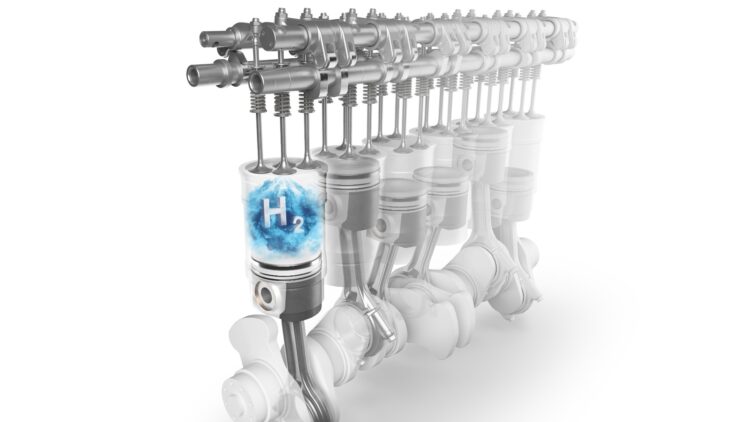Surprisingly, one of the leading German automotive suppliers, MAHLE, has recently decided to turn to hydrogen engines. The transition here marks a new phase of the industry’s search for sustainable transportation.
While Tesla still dominates the EV market, this new hydrogen tech presents a real threat in more ways than just market share – it threatens to undo our progress toward global climate targets.
How MAHLE is Changing the Game with Hydrogen Technology
Automotive technology giant MAHLE is now catching attention with its new focus on hydrogen engines. The company previously most associated with internal combustion engine technology is now firmly established in hydrogen.
The firm has already received multiple orders for engines running on hydrogen, with the first cars to utilize them to be produced by 2024. These engines are developed for passenger car applications and agricultural and construction equipment usage.
This represents a significant new application area for hydrogen technology and places MAHLE at the forefront of the green energy transition. Hydrogen fuel cell technology provides more benefits than drawbacks, such as high energy density, low emissions, and flexibility for long-distance and high-mass vehicles.
Although electric cars have increased, hydrogen is gradually being viewed as an option for sectors with longer operating miles and quicker refuelling cycles like commercial vehicles. This diversification in sustainable technologies is what MAHLE has ventured into as the automotive industry embraces change towards product diversification.
While the electrification of transport by batteries seems set to be a dominant trend for the foreseeable future, hydrogen can provide a powerful means of addressing hard-to-abate sectors as global climate goals become increasingly stringent.
Tesla Faces Growing Competition: Is Hydrogen the New Threat?
Tesla has been the market leader in electric cars for several years, changing the world’s approach to transport. Nevertheless, MAHLE’s entry into the hydrogen engine market and Tesla’s plans to integrate hydrogen fuel-cell technology drastically altered the situation.
Tesla’s decision to go with hydrogen is as strategic as it seems to counter other trends, but it also reveals that MAHLE is a growing competitor. While Tesla is currently pioneering the hydrogen market, the company may be forced to work harder to stay ahead of the rest once they have joined the bandwagon.
The problem with hydrogen vehicles, similar to those electric ones, is that they require an extensive support system. The availability of hydrogen refuelling stations is not as dense as that of EV charging stations, and the wide-scale deployment of hydrogen infrastructure demands a lot of capital investment.
The hydrogen engines MAHLE plans to release by 2024 will need a dense refuelling infrastructure. Industry players, including governments, need to develop this network so that hydrogen-fueled vehicles become a reality in the future.
The call for hydrogen technology to address the issue of carbon emissions is not only a viable solution but also creates new industry employment opportunities and technological advancement.
Hydrogen’s Future Role in Sustainable Transportation: Can It Compete with Electric Vehicles?
Hydrogen fuel-cell technology is not new, but optimization in efficiency, materials, and manufacturing techniques has made this technology less of a pipe dream for the future of mobility.
Thus, hydrogen engines may have a chance to become an essential part of the process of countries’ transition to sustainable transport as governments keep signing agreements to increase emissions requirements. Such companies as MAHLE are aligning themselves with this revolution to make hydrogen vehicles an option and a reality.
Thus, MAHLE’s recent shift to hydrogen engines is a complete surprise that marks the beginning of a new chapter in the automotive business. Thus, with Tesla’s existing electric car market dominance, it seems that the development of hydrogen technology poses a substantial threat.
While hydrogen and electric vehicles are competing for the market, it remains unclear which solution is more suitable for the future of green mobility – the one that can grow faster and satisfy the needs of both customers and businesses.

